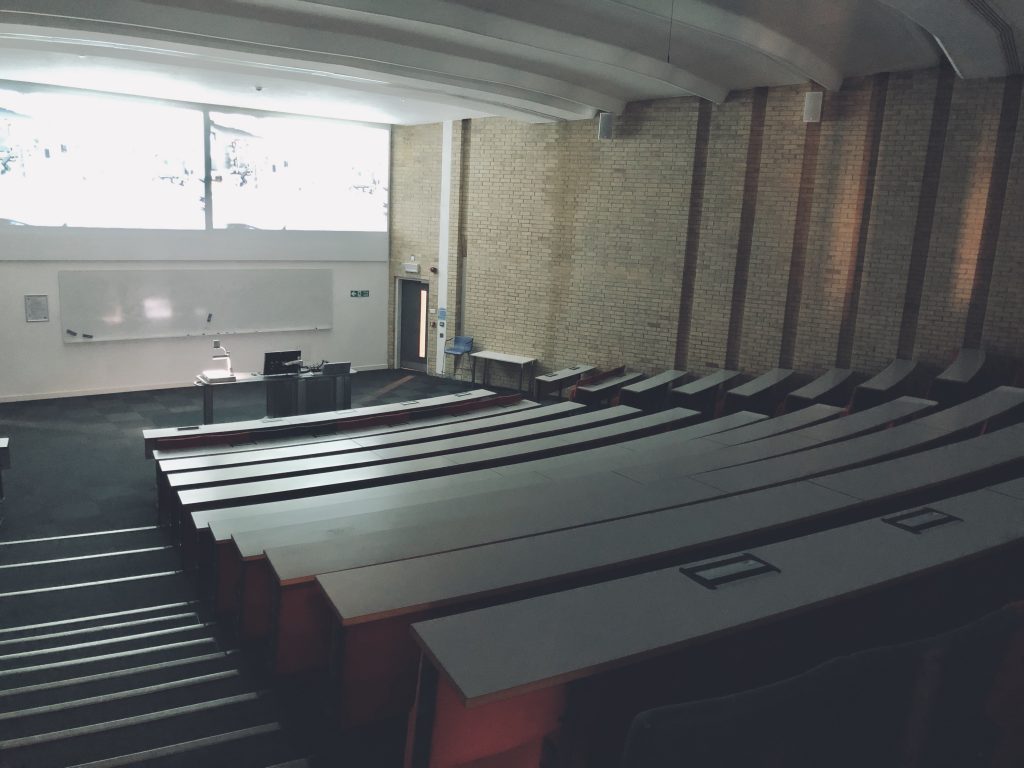
By Jojo (Student Blogger: BSc Hons Economics)
Ever wondering what a lecture is like? You might’ve already tried out some during taster days or other events, but you never really tried it for “real”…
At Lancaster, you should expect your lectures to be about 200 students in size, and depending on your course and year of study, your contact hours vary (so if you’re majoring in engineering, then you will have tons of lectures, seminars and laboratory works… Go suffer! Only kidding).
So say myself, an Economics major student. In my first year, I had six hours of economics’ lecture hours in total every week, three for one module, and three for the other. You may enjoy your two hours classes at A-Levels, but trust me, two hour lectures are “not fun”!! Reason is simple – at university, the pace that the content is taught is mind-blowing! It is quite amazing that in the first year of university, we actually learned all of A-Level stuff plus things beyond that within one academic year…So make sure you are prepared to do the work!!
So exactly how are lectures taught? Well, they are just like your ordinary lessons (but a lot bigger in size), except that you may want to listen to the lecturers and make notes of what they said, instead of writing down what’s on the PowerPoint. Firstly, it is a complete waste of time, secondly, you will never have the chance to write everything down on time (you can always look back through the slides and make notes in your own time, or just print them, they will always be on Moodle). Oh! You should also expect that the lecturers will chuck an 85 slides PowerPoint in a two hour lecture 😉
Lancaster is doing something quite interesting with lectures, they actually change lecturers every so often. This is to allow the experts to teach intellectually challenging content to students. For myself, we changed lecturers every six weeks. And the teaching received so far is quite promising, you should expect the lecturers to know “everything”. But also bear in mind, they (university and your department) value your feedback, so if you found their ways of approach are not your favourite, please do tell them and don’t just skive off the lectures, they are very important!
Ok, so we have talked about a 200 student sized lecture, but what about smaller classes, are there any smaller classes? Yes, universities most certainly do…
They are called seminars, a.k.a workshop; tutorial; or sometimes you may see yourself having a clinic (of course, laboratory workshops are slightly different…) I do agree that they are confusing, but they do have the same purposes though — giving you the chance to express your ideas; doing the work required to succeed in your course; giving you the opportunities to ask complex questions to your tutors etc…
It is also the case you may find it easier to make your new “major” friends in seminars (that is, the friends that do the same major as you). These friends can be very helpful, i.e. you may want to study with them, share thoughts, revise together, hanging out etc.
Before you go to the seminars, you are expected to have done all the preparation work, because seminars or workshops are not actually lessons (I thought they were, I was wrong, so I’m telling you right now…), they are a period of time when the tutors assess your understating of the content, as well as helping you when necessary, so they are not teaching you anything new, they are actually discussing the topics with you. So you should see it as opportunities to consolidate your understanding, as well as developing your critical thinking.
That’s it from me! A huge congratulation and welcome for getting into Lancaster. You will not regret of joining this brilliant community, with internationally recognised excellence. And good luck with your future study!!
Bon Courage!!
